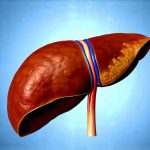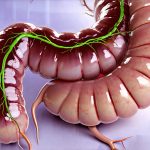The liver is arguably one of the most vital organs in the body, tirelessly working behind the scenes to perform hundreds of essential functions. It filters toxins from our blood, metabolizes nutrients, produces bile for digestion, stores glycogen for energy, and plays a critical role in immune function. In today’s world, with constant exposure to environmental pollutants, processed foods, and stress, the liver can become overburdened. While the concept of “detoxing” is often misused and sometimes misleading, supporting your liver’s natural detoxification processes through lifestyle choices and specific remedies can significantly contribute to overall health and wellbeing. It’s important to understand that the liver is a detoxifying organ already – our focus should be on assisting it in doing what it naturally does best.
The idea isn’t about drastic cleanses or restrictive diets, but rather providing your liver with the resources it needs to function optimally. This involves minimizing exposure to toxins whenever possible, adopting a healthy diet rich in nutrients, and incorporating specific foods and herbs known to support liver health. Many natural remedies have been used for centuries in traditional medicine systems to promote liver function and overall vitality. These aren’t quick fixes but rather supportive strategies that, when integrated into a holistic lifestyle, can contribute to long-term wellbeing. It’s also crucial to remember that consulting with a healthcare professional is always recommended before making significant changes to your diet or incorporating new supplements.
Dietary Strategies for Liver Support
A cornerstone of liver health is, unsurprisingly, diet. What we eat directly impacts the burden placed on this essential organ. A diet high in processed foods, sugar, and unhealthy fats forces the liver to work harder to process toxins and can ultimately lead to inflammation and impaired function. Conversely, a nutrient-rich diet provides the building blocks for optimal liver health and supports its natural detoxification pathways. Focusing on whole, unprocessed foods is paramount.
Specifically, incorporating plenty of fruits and vegetables – particularly those rich in antioxidants – can help protect the liver from damage caused by free radicals. Cruciferous vegetables like broccoli, cauliflower, Brussels sprouts, and kale contain compounds that support phase II detoxification, a crucial process where toxins are converted into less harmful substances for elimination. Fiber-rich foods also play an important role; they aid digestion and prevent the reabsorption of toxins in the gut. Minimizing alcohol consumption is also essential, as alcohol places significant stress on the liver.
Hydration is equally critical. Water helps flush out toxins through the kidneys and supports overall liver function. Aim for at least eight glasses of water per day. Furthermore, healthy fats like those found in avocados, olive oil, and nuts provide essential nutrients and support cell membrane health, which is vital for efficient detoxification. Prioritizing a balanced diet that minimizes toxin exposure and maximizes nutrient intake is the most foundational step you can take to support your liver.
Herbs Known to Support Liver Function
Throughout history, herbal medicine has played a significant role in supporting liver health. Several herbs have been traditionally used – and are increasingly supported by scientific research – for their potential benefits. It’s important to note that while these herbs may offer supportive properties, they should not be considered replacements for medical treatment or prescribed medications. Always consult with a qualified healthcare practitioner before using herbal remedies, especially if you have existing health conditions or are taking medication.
- Milk Thistle: Perhaps the most well-known herb for liver support, milk thistle contains silymarin, an active compound that has been shown to protect liver cells from damage and promote regeneration. It’s often used in cases of liver inflammation and can help improve liver function tests. Studies suggest it may also have antioxidant properties.
- Dandelion Root: Often dismissed as a weed, dandelion root is actually a powerful herb with diuretic properties that can help support detoxification by increasing urine production. It also stimulates bile flow, which aids digestion and helps eliminate toxins.
- Turmeric: This vibrant spice contains curcumin, a potent anti-inflammatory compound. Chronic inflammation can significantly impact liver health, so turmeric’s ability to reduce inflammation is highly beneficial. Curcumin also supports glutathione production, a crucial antioxidant for detoxification.
The best way to incorporate these herbs isn’t necessarily through supplements (though those are an option). Consider adding dandelion greens to salads, using turmeric generously in your cooking, or drinking milk thistle tea. Consistency is key when it comes to herbal remedies; regular use over time yields the greatest benefits. Remember that quality matters – choose reputable brands and organic sources whenever possible.
Lifestyle Factors Beyond Diet
While diet is paramount, supporting liver health extends beyond what we eat. Several lifestyle factors significantly impact its function. Managing stress levels is crucial because chronic stress can negatively affect all bodily functions, including liver detoxification processes. Finding healthy ways to manage stress – such as yoga, meditation, spending time in nature, or engaging in hobbies you enjoy – is essential for overall wellbeing and liver health.
Regular exercise also plays a vital role. Physical activity improves circulation, enhances lymphatic drainage (which helps eliminate toxins), and supports metabolic function. Aim for at least 30 minutes of moderate-intensity exercise most days of the week. Furthermore, minimizing exposure to environmental toxins is critical. This includes reducing your use of harsh chemicals in cleaning products and personal care items, avoiding excessive alcohol consumption, and being mindful of air quality.
Finally, adequate sleep is often overlooked but profoundly impacts liver health. During sleep, the body undergoes essential repair and detoxification processes. Aim for 7-9 hours of quality sleep per night to allow your liver to rest and regenerate. A holistic approach that integrates a healthy diet, stress management, regular exercise, toxin reduction, and sufficient sleep provides the greatest support for optimal liver function. It’s about creating a lifestyle that nurtures this vital organ and promotes overall health.


















